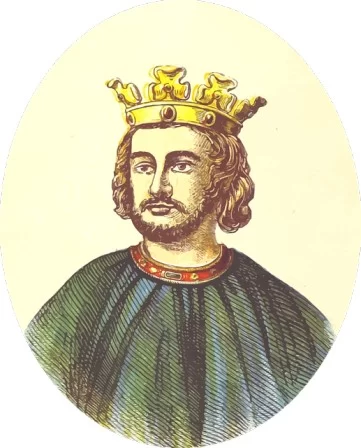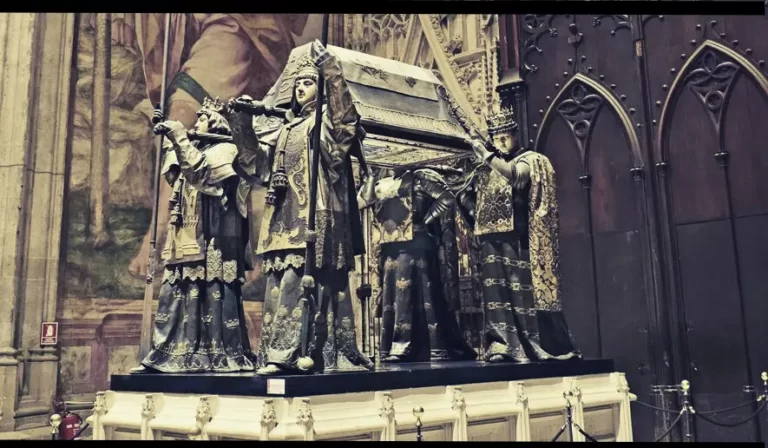The Worst English King of All Time: King John’s Reign of Terror

King John, also known as John Lackland, was the youngest son of Henry II and Eleanor of Aquitaine. His older brother Richard the Lionheart was regarded as the greatest King of England. John was not expected to ascend to the throne, but when his elder brothers died, he became the heir to the Plantagenet dynasty. He was crowned King of England in 1199 and harshly judged as the worst English king. King John reigned from 1199 to 1216 CE and was known as a devious, dishonest ruler.
John was a wise ruler, but he was not well-liked, and his reign was fraught with difficulties. He was ruthless, suspicious, and had an iron fist when dealing with his enemies. Financial mismanagement, poor leadership decisions, and social unrest marked his reign. He was also known for his clashes with the Pope and the Church.
But what exactly did King John do to earn the title of ‘the worst English King’? In this article, we will explore the disastrous legacy of King John and his reign as we already discussed the interesting history of Abu Bakr II: King of the Ancient Empire.
Worst English King john’s Reign

King John was an ambitious ruler. He sought to expand his kingdom through warfare and diplomacy. He was successful in several campaigns against rival kings and nobles and was able to extend his kingdom’s borders. Yet, his successes were short-lived. His financial mismanagement and poor leadership led to his downfall.
John levied heavy taxes on his people to finance his wars. His extravagant lifestyle led to an increase in public debt. He also increased the number of legal disputes, which led to an increase in court fees. This further burdened his people and led to widespread discontent.
Furthermore, John was often indecisive and was not listen to his advisors. He was also known for his cruel punishments, which led to further unrest among his people.
Financial Mismanagement
The most significant problem during King John’s reign was his financial mismanagement. He spent heavily on his wars and lavish lifestyle, and his taxes were so high that his people could not afford them. This led to a decline in trade and commerce, as people could not pay taxes.
Moreover, John was known for his use of bribery and corruption. He was notorious for accepting bribes from his barons and other powerful figures in exchange for favors. He also increased the number of royal officials, increasing the burden on his people.
John’s financial mismanagement eventually led to the kingdom’s wealth decline. This, in turn, led to a decline in his power and authority.
Poor Leadership Decisions
John’s poor leadership decisions further worsened his reputation. He was known for his authoritarian rule, and his cruelty was legendary. He was also known for his frequent changes of heart and refusal to consult with his advisors.
Moreover, John was known for his lack of trust in his people. He surrounded himself with foreign mercenaries and ignored the advice of his people. This led to a decline in popularity and further discontent among his people.
John was also known for his refusal to accept responsibility for his mistakes. He often blamed his failures on others and refused to take the blame for his actions. This further worsened his reputation and led to further resentment among his people.
Social Unrest and Rebellion
King John’s financial mismanagement and poor leadership decisions eventually led to widespread social unrest and rebellion.
The rebellion began in 1215 when a group of disgruntled barons forced John to sign the Magna Carta. The Magna Carta outlined the people’s rights and limited the king’s power. It was a major victory for the people and is considered one of the most important documents in British history.
However, John was not happy with the Magna Carta, and he soon began to break the terms of the agreement. This led to further unrest and eventually to civil war. John was finally forced to abdicate the throne in 1216 and died in 1216.
The Magna Carta
The Magna Carta was a major victory for the people of England. It is considered one of the most important documents in British history. The document outlined the people’s rights and limited the king’s power. It also established the rule of law and was the first document to guarantee the rights of the people.
The Magna Carta was a major victory for the people of England. It is still used as a source of inspiration by many people today. The document is seen as a symbol of freedom and democracy and is still used as a model for modern constitutions.
King John’s Last Days
King John’s last days were marked by despair and loneliness. He was forced to abdicate the throne, and he died in 1216. His death marked the end of the Plantagenet dynasty and the beginning of the reign of the House of Normandy.
John’s death was a relief for many of his enemies, but it was also a relief for many of his subjects. He was a ruler marked by financial mismanagement and poor leadership. He was also known for his tyranny and cruelty, and his people widely despised him.
Legacy of King John
John’s legacy is one of disaster and destruction. He was one of the evilest kings in history.
However, John’s reign was not all bad. He was a savvy ruler and could extend his kingdom’s borders through warfare and diplomacy. He was also responsible for signing the Magna Carta, one of the most important documents in British history.






